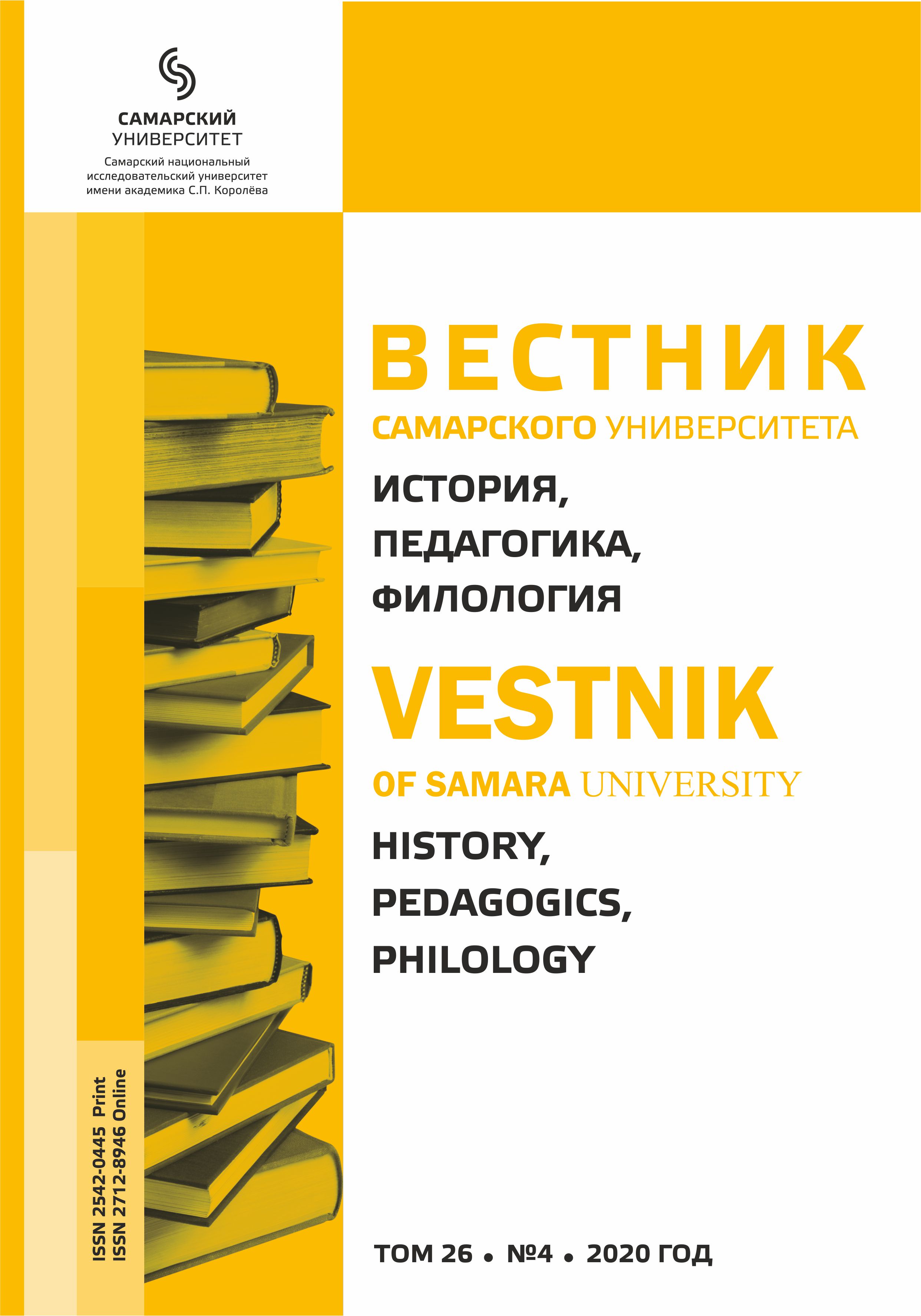Динамика вовлеченности арабских стран в решение палестинского вопроса (1967–2002 гг.)
- Авторы: Мельникова С.В.1
-
Учреждения:
- Московский государственный институт международных отношений МГИМО (Университета) МИД России
- Выпуск: Том 26, № 4 (2020)
- Страницы: 30-37
- Раздел: Статьи
- URL: https://journals.ssau.ru/hpp/article/view/8223
- DOI: https://doi.org/10.18287/2542-0445-2020-26-4-30-37
- ID: 8223
Цитировать
Полный текст
Аннотация
Статья посвящена изучению подхода арабских стран в разрешении палестино-израильского вопроса. Целью исследования является установление причин и следствий изменения вовлеченности арабских государств в мирный процесс с 1967 по 2002 год. Для достижения цели автор ставит перед собой задачу, используя метод исторического анализа, рассмотреть такие ключевые события, как заключение мирных соглашений между Израилем и Египтом, проведение конференции в Мадриде, процесс Осло, заключение мирных соглашений между Израилем и Иорданией, а также выдвижение Арабской мирной инициативы. Автор выделяет различные этапы в эволюции позиции арабских стран по палестинской проблеме – от абсолютного непризнания Израиля до нормализации отношений с ним. В результате проведенного анализа установлено, что уровень вовлеченности стран арабского лагеря в палестино-израильское урегулирование снижается, в общемировом контексте причинами этих изменений можно считать распад СССР, который предопределил необходимость арабским странам искать новый источник поддержки в лице США. Среди других причин такие, как: приоритезация арабскими государствами экономического фактора и вопросов безопасности, недостаток ресурсов для отстаивания своей позиции по Палестине, разрушение единой арабской международной позиции и падение популярности концепции панарабизма как такового. Делается общий вывод, что палестино-израильский конфликт перестает быть камнем преткновения для разрешения более крупного арабо-израильского конфликта, а, напротив, становится в нем разменной монетой. Таким образом, можно предположить, что даже при возобновлении мирного процесса участие арабских стран в нем будет достаточно формальным. Вероятно, это приведет к тому, что конфликт продолжит развиваться стихийно, с отдельными все более незначительными вспышками палестинского сопротивления, пока постепенно не завершится окончательной и бесповоротной израильской оккупацией спорных земель, и все это на фоне постепенного сближения государства Израиль с соседними странами Ближневосточного региона.
Об авторах
С. В. Мельникова
Московский государственный институт международных отношений МГИМО (Университета) МИД России
Автор, ответственный за переписку.
Email: sophiazavodnik@gmail.com
ORCID iD: 0000-0001-5797-041X
аспирант, кафедра дипломатии
Россия, 119454, Российская Федерация, г. Москва, пр. Вернадского, 76Список литературы
- Abadi 2006 – Abadi J. Egypt's Policy Towards Israel: The Impact of Foreign and Domestic Constraints // Israel Affairs. Vol. 12. 2006. P. 159–176. DOI: http://doi.org/10.1080/13537120500382040.
- Almomani 2012 – Almomani H. Evaluating Peace Agreements: The Jordanian-Israeli Peace Treaty of 1994, 16 Years Later: A Jordanian Perspective // Jordan Journal of Social Science. 2012. Vol. 5, No. 3. P. 500–515. URL: 337678882_Evaluating_Peace_Agreements_The_Jordanian-Israeli_Peace_Treaty_of_1994_16_Years_Later_A_Jordanian_Perspective.
- Bani-Salamah 2012 – Bani-Salamah M., Bani Salameh M. The Camp David Accords: Lessons and Facts // The Arab Journal For Arts. Vol. 9, № 2A. 2012. P. 41–66. DOI: http://doi.org/10.1002/humu.1380030213.
- Crenshaw 2001 – Crenshaw M. Why America? The globalization of civil war // Current history. 2001. Vol. 100, № 650. P. 425–432. DOI: http://doi.org/10.1525/curh.2001.100.650.425.
- Hellyer 2001 – Hellyer P. The Evolution of UAE Foreign Policy // The United Arab Emirates: A New Perspective / ed. by P. Hellyer, I. Al Abed. London: Trident Press, 2001. P. 161–179. URL: https://www.researchgate.net/publication/242563410_The_Evolution_of_UAE_Foreign_Policy/
- Podeh 2014 – Podeh E. Israel and the Arab Peace Initiative, 2002–2014: A Plausible Missed Opportunity // The Middle East Journal. 2014. P. 584–603. DOI: http://doi.org/10.3751/68.4.15.
- Shlaim 2005 – Shlaim A. The Rise and Fall of the Oslo Peace Process // International Relations of the Middle East / ed. by L. Fawcett. Oxford: Oxford University Press. 2005. Pp. 241–261. URL: http://users.ox.ac.uk/~ssfc0005/The%20Rise%20and%20Fall%20of%20the%20Oslo%20Peace%20Process.html.
- Teitelbaum 2009 – Teitelbaum J. The Arab Peace Initiative: A Primer and Future Prospects // Jerusalem Centre for Public Affairs. 2009. P. 4–10. URL: https://www.jcpa.org/text/Arab-Peace-Initiative.pdf.
- Абрамов 2016 – Абрамов С.М. Израиль и Палестина: Испытание переговорным процессом (на примере «Осло-1» и «Осло-2») // Историческая и социально-образовательная мысль. 2016. Т. 8, № 4/1. С. 29–41. DOI: http://doi.org/10.17748/2075-9908-2016-8-4/1-29-41.
- Гофман 2018 – Гофман А.В. Значение Мадридской мирной конференции 1991 г. в урегулировании арабо-израильского конфликта // Тирош. Труды по иудаике, славистике, ориенталистике. 2018. С. 195–205. DOI: http://doi.org/10.31168/2658-3380.2018.18.4.1.
- Джабер Тахер 2015 – Джабер Тахер М.А. Мадридская конференция // Обозреватель. 2015. № 3 (302). C. 67–77. URL: https://i-sng.ru/pdf/2180/34767-3302-03-2015.pdf; https://www.elibrary.ru/item.asp?id=23102703.
- Пеньков 2020 – Пеньков В.Ф., Алфедейлат Ф. Политический режим Палестины в эпоху британской колонизации 1917–1948 гг.: политико-правовой аспект // Международные отношения. 2020. № 1. С. 51–60. DOI: http://doi.org/10.7256/2454-0641.2020.1.32419.
- Хрусталев 2006 – Хрусталев М. Ближневосточный конфликт: динамика и перспективы // Международные процессы. 2006. Т. 4, № 2 (11). С. 4–18. URL: http://intertrends.ru/system/Doc/ArticlePdf/632/Khrustalev-11.pdf.; https://www.elibrary.ru/item.asp?id=17006244.
- Эпштейн 2003 – Эпштейн А. Бесконечное противостояние: Израиль и арабский мир: войны и дипломатия. Москва: Ин-т изучения Израиля и Ближнего Востока, 2003. 230 с. URL: http://book.iimes.su/?p=2305.
Дополнительные файлы













